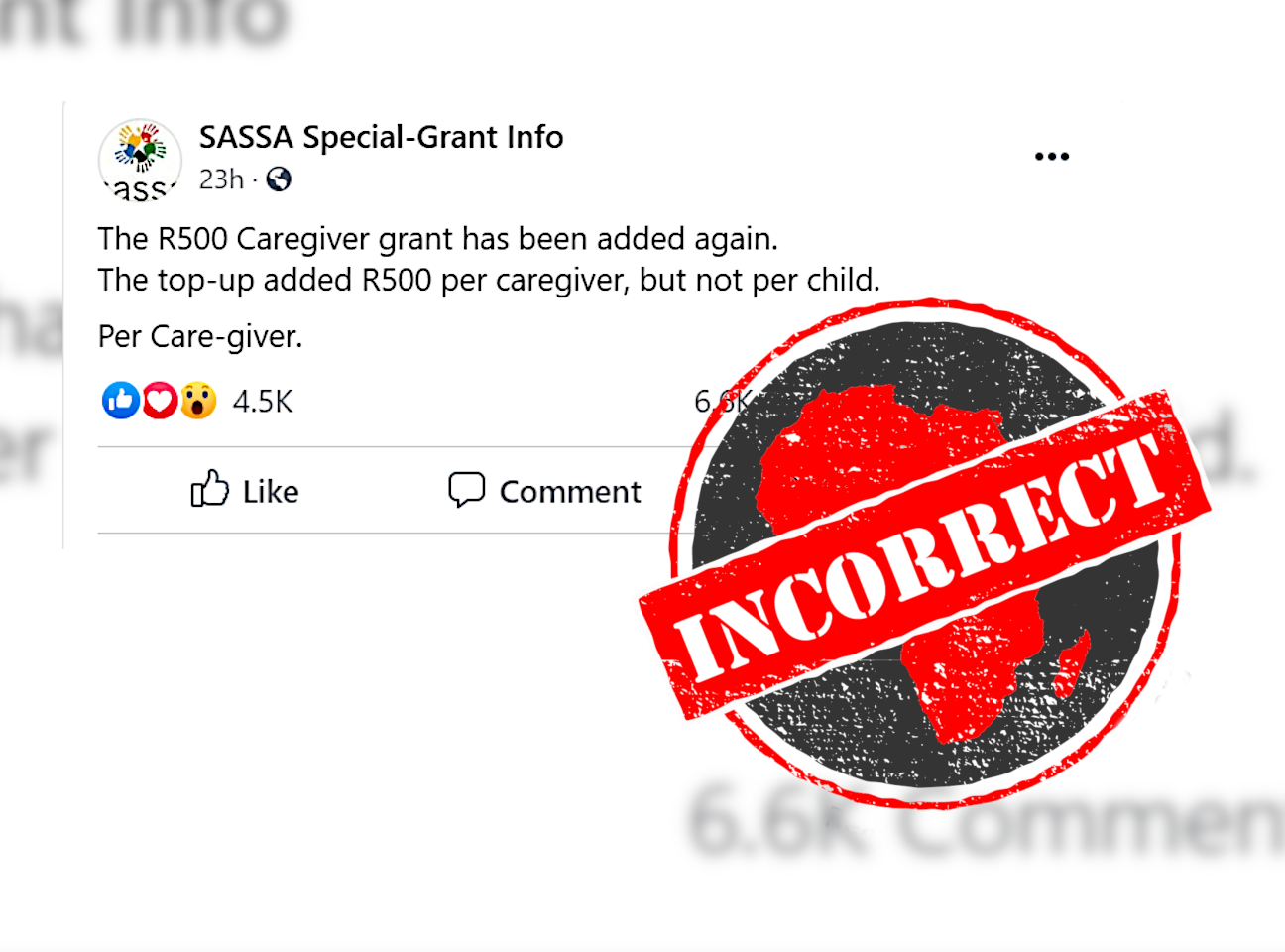A Facebook post claims that the R500 caregivers top-up grant paid by the South African Social Security Agency as the Covid-19 pandemic took hold will continue.
“The R500 Caregiver grant has been added again. The top-up added R500 per caregiver, but not per child,” it reads. It was posted on 24 November 2020 and has been viewed more than 2 million times so far.
But its claim is incorrect.

In April, president Cyril Ramaphosa announced that beneficiaries of the caregivers grant would receive an extra R500 from June to October.
The caregivers grant is available to South African citizens and permanent residents who need financial assistance to raise children.
The top-up was intended to limit the effects of the national Covid-19 lockdown and was made available per caregiver, rather than per child. If a person cared for three children, they still only received an extra R500, not R500 per child.
But the top-up came to an end in October. This was despite a court application by local human rights organisation, the Black Sash. As of November 2020, caregivers went back to receiving R450 per child.
Several credible news organisations have reported on the cancellation of the top-up grant. The claim that it has been extended beyond October is incorrect. – Africa Check
“The R500 Caregiver grant has been added again. The top-up added R500 per caregiver, but not per child,” it reads. It was posted on 24 November 2020 and has been viewed more than 2 million times so far.
But its claim is incorrect.

Top-up grant ended in October 2020
In April, president Cyril Ramaphosa announced that beneficiaries of the caregivers grant would receive an extra R500 from June to October.
The caregivers grant is available to South African citizens and permanent residents who need financial assistance to raise children.
The top-up was intended to limit the effects of the national Covid-19 lockdown and was made available per caregiver, rather than per child. If a person cared for three children, they still only received an extra R500, not R500 per child.
But the top-up came to an end in October. This was despite a court application by local human rights organisation, the Black Sash. As of November 2020, caregivers went back to receiving R450 per child.
Several credible news organisations have reported on the cancellation of the top-up grant. The claim that it has been extended beyond October is incorrect. – Africa Check
Republish our content for free
For publishers: what to do if your post is rated false
A fact-checker has rated your Facebook or Instagram post as “false”, “altered”, “partly false” or “missing context”. This could have serious consequences. What do you do?
Click on our guide for the steps you should follow.
Publishers guideAfrica Check teams up with Facebook
Africa Check is a partner in Meta's third-party fact-checking programme to help stop the spread of false information on social media.
The content we rate as “false” will be downgraded on Facebook and Instagram. This means fewer people will see it.
You can also help identify false information on Facebook. This guide explains how.



Add new comment